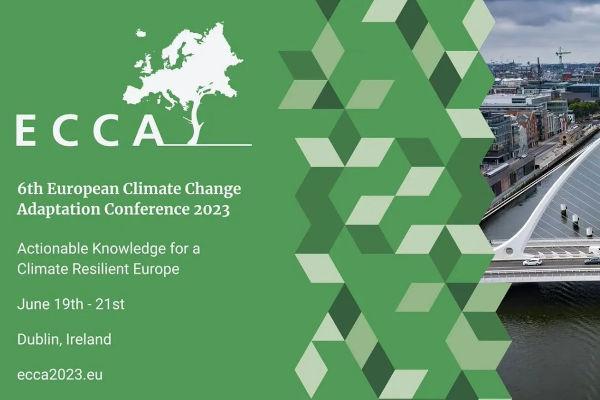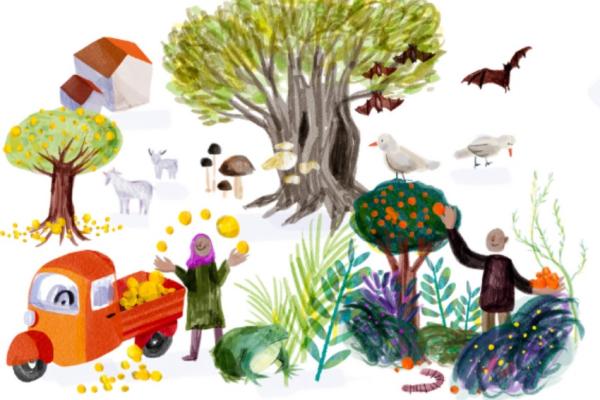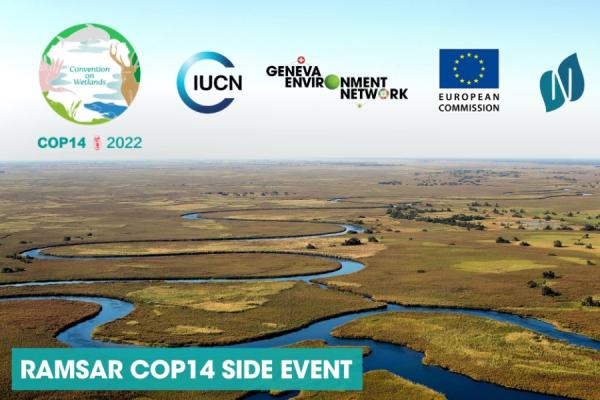What is the EU's policy?
The European Green Deal steps up efforts on climate-proofing, resilience-building, prevention and preparedness. The implementation of nature-based solutions across all landscapes is considered key in achieving the objectives of major EU policy priorities, in particular the EU Biodiversity Strategy for 2030 and the EU Adaptation Strategy, as a way to foster biodiversity and make Europe more climate-resilient.
Nature-based solutions present a credible means to address key societal issues, such as biodiversity loss, climate change, and disaster risk reduction. The Commission actively pursues policy dialogues and outreach initiatives at EU and global level to foster engagement, develop a broad knowledge base and support the uptake of nature-based solutions at scale.
Increased public and private investments in nature-based solutions are a key component of the transformational change needed to make our societies and economies more sustainable and just.
Nature-based solutions: Commission definition
Current research policy and funding goals
- mainstream nature-based solutions in research and innovation, policy and practice at EU, Member State and global level
- strengthen and widen the European research and innovation community on nature-based solutions
- demonstrate the potential of nature-based solutions and provide the evidence base on their socio-economic cost-effectiveness and long-term sustainability
- advance the development, uptake and upscale of locally attuned nature-based solutions, including through co-creation, co-governance and citizen engagement
- improve financing solutions, including the access to finance, to accelerate the market uptake of nature-based solutions
- improve framework conditions for nature-based solutions, including through bringing learning for sustainability and nature-based solutions in education curricula at all levels
How the research policy is implemented
EU research and innovation for nature-based solutions is currently implemented through
- the EU research and innovation funding programme Horizon Europe (2021-2027)
- the European Biodiversity Partnership (Biodiversa+), notably via the BiodivClim Knowledge Hub on the topic “Potential of nature-based solutions for mitigating and adapting to climate change” and the upcoming research call on nature-based solutions (call launch 11 September 2023)
- NetworkNature, an EU-funded coordination and support action whose role is to harness the collective intelligence of EU-funded research and innovation projects on NBS, facilitate the collection and synthesis of their results, and offer collaboration and dissemination opportunities. NetworkNature has developed a European Roadmap to 2030 for Research and Innovation on Nature-based Solutions.
Horizon Europe
In Horizon Europe, nature-based solutions are further tested, deployed, promoted and their benefits and impacts assessed, notably under Cluster 6: Food, Bioeconomy, Natural Resources, Agriculture and Environment and via the EU Missions, in particular the missions on adaptation to climate change, climate-neutral and smart cities, and restoring our ocean and waters. Nature-based solutions are also relevant to achieving the objectives of the mission on healthy soils.
Through the first Horizon Europe Cluster 6 work programme (2021-2022), the European Commission is funding research and innovation to
- assess the economics of nature-based solutions by looking at cost-benefit analysis, market development and funding
- look at the role of nature-based solutions in the prevention and reduction of risks, and the insurance sector
- develop nature-based therapy for health and well-being
- assess the socio-politics of nature-based solutions for more inclusive and resilient communities
Through the Horizon Cluster 6 work programme 2023-2024, the European Commission is funding research and innovation to
- address biodiversity decline and promote nature-based solutions in higher education
- unlock financial flows towards reversing biodiversity loss
- build up knowledge on nature positive economy and support its upscale
- address biodiversity loss and enhance ecosystem services in urban and peri-urban areas
- demonstrate nature-based solutions for the sustainable management of water resources in a changing climate, in particular to reduce the impacts of extreme droughts
- demonstrate the potential of nature-based solutions and the New European Bauhaus to contribute to sustainable, inclusive and resilient living spaces and communities
Through the Missions (2021-2023), the European Commission is funding research and innovation to/for
- restore fresh and transitional water ecosystems (Danube river basin lighthouse)
- protect and restore wetlands, flood plains, coastal wetlands and salt marshes and their biodiversity (Danube river basin lighthouse)
- test and demonstrate transformative solutions on climate resilience, mainstreaming nature-based solutions in the systemic transformation
- boost the sponge function of landscape as a way to improve climate-resilience to water management challenges
- test and demonstrate transformative solutions increasing climate resilience of the agriculture and/or forestry sector
- test and demonstrate transformative solutions to protect critical infrastructure from climate change, mainstreaming nature-based solutions
- test and demonstrate transformative solutions to build resilience towards health risks caused by the effects of climate change
- demonstrate the effective and sustainable management of sediments in the Danube river-Black sea system (Danube river basin lighthouse)
- demonstrate integrated approaches for protection and restoration of natural lake ecosystems and their biodiversity
- demonstrate an integrated multi-stakeholder approach to increasing landscape water retention capacity at regional scale (joint call Missions on adaptation to climate change, climate-neutral and smart cities, restoring ocean and waters)
- urban greening and re-naturing for urban regeneration, resilience and climate neutrality (joint call Missions on adaptation to climate change and climate-neutral and smart cities)
What was done under Horizon 2020
Horizon 2020 (2014-2020) marked a significant change of pace in the European Commission investment in research and innovation on nature-based solutions.
Nature-based solutions projects funded through Horizon 2020 looked at:
NBS in cities
- climate and water resilience
- water security
- inclusive urban regeneration
- international restoration and rehabilitation of urban ecosystems
- carbon neutral cities and improved air quality
- improving well-being and health
- new NBS governance, business, financing models and economic impact assessment tools
NBS beyond cities
- hydro-meteorological risk reduction
- economics and insurance value of NBS
- inter-relations between climate change, biodiversity and ecosystem services
- protection and restoration of ecosystems
Documents
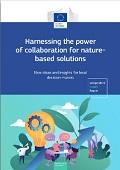
- Report
- Directorate-General for Research and Innovation
This briefing paper presents practical examples and inspiration for local decision-makers on utilizing co-governance approaches to promote participatory processes and collaborative creation of nature-based solutions.
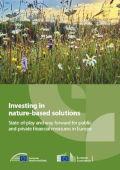
- Report
- European Investment Bank
State-of-play and way forward for public and private financial measures in Europe.
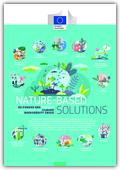
- Factsheet
- Directorate-General for Research and Innovation
NBS must benefit biodiversity and support the delivery of a range of ecosystem services.
Find your EU funding programme for the environment
The vital role of nature-based solutions in a nature positive economy
Evaluating the impact of nature-based solutions:
Summary for policy makers, Handbook for practitioners, Appendix of methods
Nature-based solutions in Europe: European Environment Agency report
Nature-based solutions: state of the art in EU-funded projects
Nature-based solutions for microclimate regulation and air quality
Nature-based solutions for flood mitigation and coastal resilience
Nature-based solutions improving water quality & waterbody conditions
Nature-based solutions towards sustainable communities
Nature-based solutions for climate mitigation
Biodiversity and nature-based solutions
Latest
- News article
The EU Partnership Biodiversa+ has launched a call for research proposals on “Nature-Based Solutions (NBS) for biodiversity, human well-being and transformative change”.
- 2 min read
- News article
The EIB report on financing Nature-based Solutions (NbS) is an important step forward in investing in NbS to address the climate and biodiversity crisis
- 1 min read

